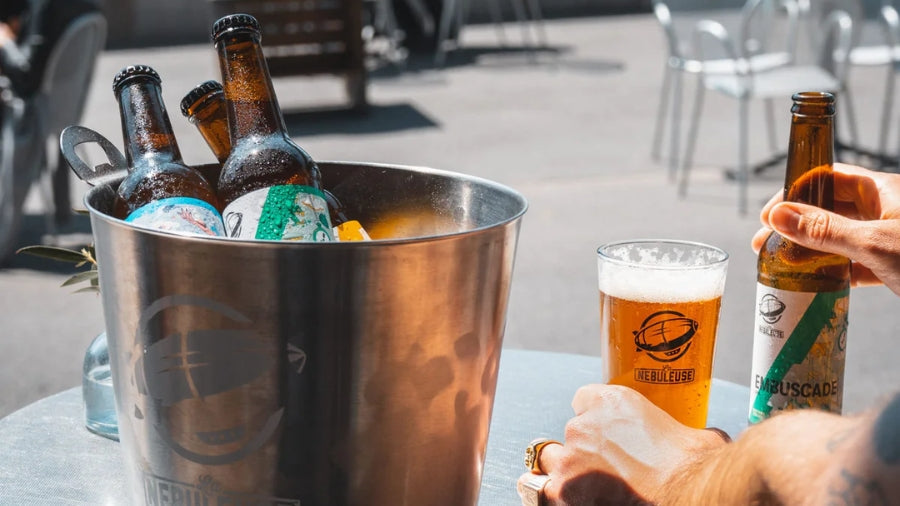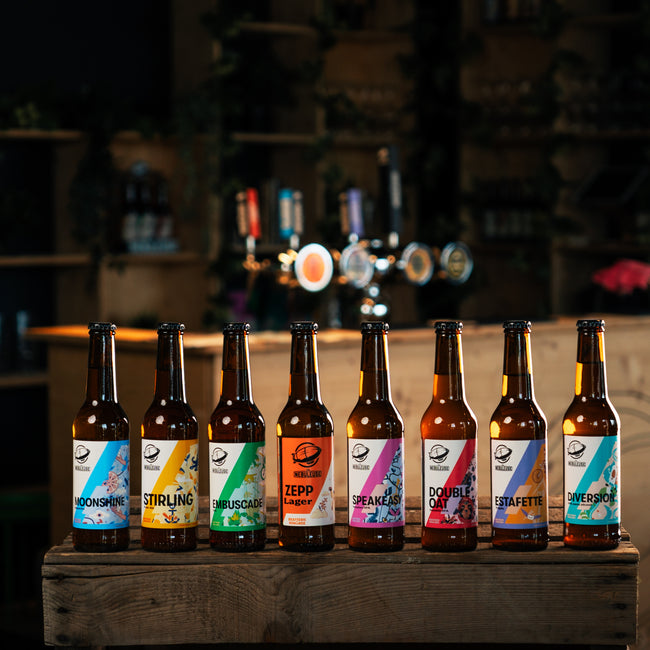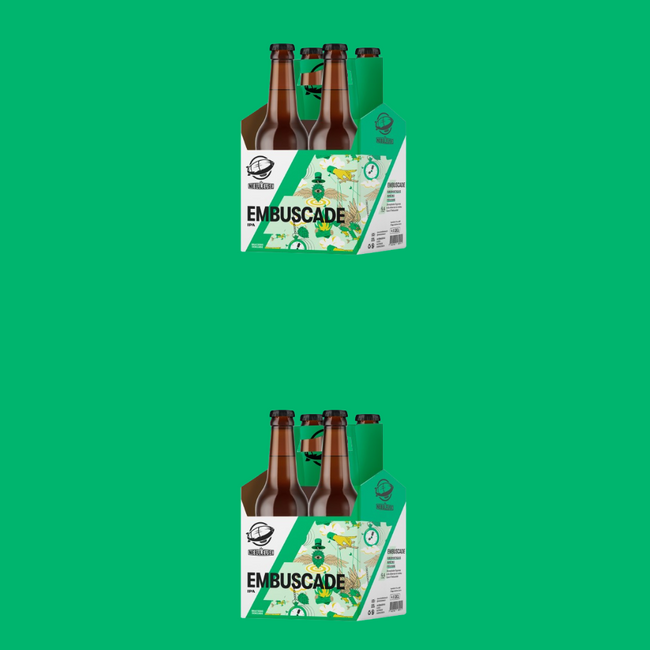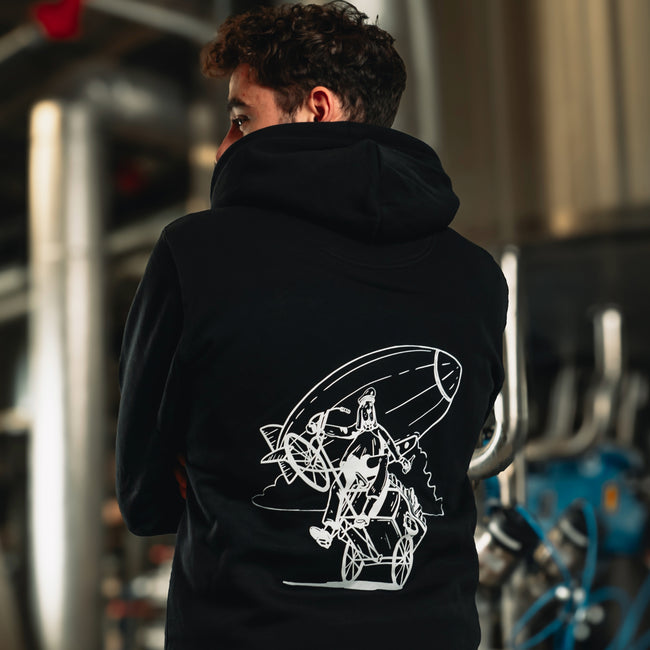The rise of craft beers in French-speaking Switzerland

In less than ten years, French-speaking Switzerland has established itself as a true hotbed of craft beer creation. Once dominated by large industrial brands, the region has seen the emergence of an impressive number of microbreweries, each bringing its own vision and expertise. Among them, La Nébuleuse, founded in 2014 by three childhood friends, has become one of the symbols of this brewing revolution, with its bold beers and commitment to sustainability.
The pioneers of the movement: the birth of craft breweries in French-speaking Switzerland
From humble beginnings to rapid expansion
The craft beer movement began quietly in French-speaking Switzerland, with a few enthusiasts who decided to move away from standardized beers to create authentic products that reflected their region. La Nébuleuse is one of these pioneers. Founded in 2014, it began operations in a small space under the Flon in Lausanne, a neighborhood known for its lively nightlife. The three co-founders —Arthur, Kouros, and Jeremy—drew inspiration from North American brewing trends to create beers that stood out from the crowd.
The transition to a larger production site in Renens marked a turning point in their development. With modern facilities and a commitment to sustainable brewing practices, La Nébuleuse has attracted an audience seeking novelty and quality. Today, creations like Stirling, their first finalized recipe, and Double Oat, gold medalist at the 2021 European Beer Star, demonstrate their ability to combine tradition and innovation.
The explosion in the number of breweries
This creative explosion, which is affecting all of Switzerland, finds a particularly dynamic expression in French-speaking Switzerland. In 2010, there were barely ten craft breweries in the region. Today, this number has exceeded 200, reflecting consumers' enthusiasm for local, quality beers. This proliferation is partly due to a legislative change that made it easier for small producers to obtain licenses, but also to a shift in consumer mentality. Consumers are increasingly seeking authentic products, often made with local ingredients.
This brewing boom has also led to a diversification of the beer offerings. There is now a range of beers from classic lagers to IPAs, stouts, sour beers, and even oak-aged beers. La Nébuleuse, with its diverse range, has carved out a niche for itself in this competitive environment, offering unique beers like Embuscade, an IPA that already won a bronze medal in 2017 at the European Beer Star.
Current brewing trends: a constantly evolving market
The rise of alcohol-free and organic beers
The trend toward healthier lifestyles is also reflected in beverage choices. Alcohol-free beers, once associated with a bland taste, are now experiencing a revival thanks to the efforts of craft brewers. They are competing in ingenuity to produce alcohol-free beers that are just as good as their classic versions. La Nébuleuse has risen to the challenge with its Diversion, an alcohol-free IPA that preserves all the aromatic richness of hops . It has succeeded in attracting customers looking for moderation without sacrificing the pleasure of taste.
At the same time, organic beers are gaining popularity. Craft breweries, keen to reduce their environmental footprint, are increasingly incorporating certified organic raw materials into their recipes. This goes hand in hand with a comprehensive sustainability approach, which La Nébuleuse has adopted by participating in initiatives such as the La Fabrique Circulaire program, aimed at integrating the circular economy into their production processes.
When breweries unite: collaborations and original creations
Collaborations between craft breweries have become a major trend, fostering the exchange of expertise and innovation. These partnerships allow for the creation of limited-edition beers that attract the attention of those who love new things. In French-speaking Switzerland, breweries are keen to partner to experiment with new flavors, whether by incorporating local fruits or aging their beers in barrels that previously contained wine or spirits.
In addition to its brewing partnerships, La Nébuleuse has embarked on ambitious environmental projects. In collaboration with La Fabrique Circulaire, it launched a project to recover and recycle CO₂ emitted during beer fermentation. The goal is to create a local ecosystem where CO₂ is recovered, transformed, and reused by other industries in the region, thus contributing to the reduction of overall emissions.
Conclusion
The dynamism of craft breweries in French-speaking Switzerland reflects a thirst for authenticity and diversity. Pioneers like La Nébuleuse, with their innovative beers and commitment to sustainable practices, are showing the way forward for a rapidly expanding sector. The rise of alcohol-free beers and creative collaborations is a testament to the adaptability and creativity of French-speaking brewers. Recent years have demonstrated that beyond trends, craft beer is now deeply rooted in the region's cultural and economic heritage.
With more and more consumers attracted by quality local products, the future looks bright for craft breweries in French-speaking Switzerland. They will undoubtedly continue to innovate and push the boundaries of their craft, thus helping to strengthen their position in the global brewing landscape.








